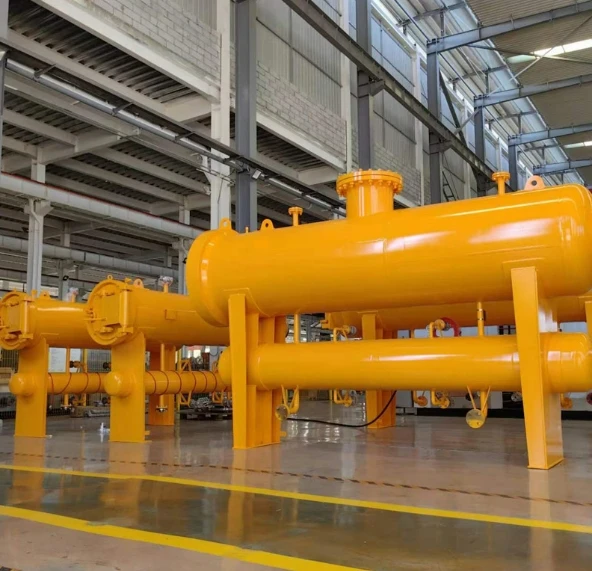
Dec . 13, 2024 16:01
Back to list
filter separator
Understanding Filter Separators A Key Component in Fluid Processing
In various industries, particularly in oil and gas, chemical processing, and water treatment, the efficiency and safety of fluid handling are paramount. One of the crucial components that play a significant role in these processes is the filter separator. This equipment is designed to separate oil, water, and solids from gases or liquids, ensuring that downstream processes can operate effectively and safely.
The Functionality of Filter Separators
Filter separators work primarily on the principles of gravity and inertial separation. When a mixture containing different phases such as liquids (oil and water) and solids enters the separator, it is subjected to several steps of processing. First, the fluid passes through a filter medium that captures solid particulates. This initial filtration is crucial as it prevents solid contaminants from clogging downstream equipment, which could lead to failures and increased maintenance costs.
After the initial filtration, the mixture enters a separation chamber where gravitational forces come into play. Due to differences in density, the heavier phase (usually water) settles at the bottom, while the lighter phase (oil or gas) rises to the top. This separation is enhanced by the design of the separator, which often includes baffles or other internal structures that promote orderly flow and enhance the settling process.
Importance in Industrial Applications
The versatility of filter separators makes them indispensable in numerous applications. In the oil and gas industry, for instance, these separators are used to treat crude oil and natural gas before the substances are transported for further processing or refined. By removing unwanted water and solid impurities, filter separators help maintain the quality of the product and prevent corrosion and fouling in pipelines and processing equipment.
filter separator

In the chemical processing industry, these devices are essential for safeguarding product integrity by ensuring that only the desired components are carried forward in production processes. Water treatment facilities also rely on filter separators to manage sludges and ensure that treated water meets safety and regulatory standards before being released back into the environment or reused.
Technological Advancements
Recent advancements in materials and technology have led to the development of more efficient and compact filter separators. Innovations such as improved filter media can enhance filtration rates and extend the service life of the separators. The integration of automation and IoT technology allows for real-time monitoring and control of separation processes, ensuring optimal performance and reliability.
Moreover, environmental regulations have pushed industries towards adopting greener technologies. Filter separators help reduce waste by effectively separating valuable resources like oil, which can be recovered and reused, thereby minimizing environmental impact and promoting sustainability.
Conclusion
Filter separators are a vital component in fluid processing across various industries. Their ability to separate different phases effectively ensures the efficiency and integrity of industrial processes, contributing to safety, environmental protection, and product quality. As technology continues to evolve, the capabilities of filter separators will further improve, paving the way for more efficient and sustainable industrial practices. Understanding and utilizing this essential equipment is critical for any organization involved in fluid processing, as it can lead to significant operational benefits and compliance with regulatory standards.
Latest news
-
Safety Valve Spring-Loaded Design Overpressure ProtectionNewsJul.25,2025
-
Precision Voltage Regulator AC5 Accuracy Grade PerformanceNewsJul.25,2025
-
Natural Gas Pressure Regulating Skid Industrial Pipeline ApplicationsNewsJul.25,2025
-
Natural Gas Filter Stainless Steel Mesh Element DesignNewsJul.25,2025
-
Gas Pressure Regulator Valve Direct-Acting Spring-Loaded DesignNewsJul.25,2025
-
Decompression Equipment Multi-Stage Heat Exchange System DesignNewsJul.25,2025

